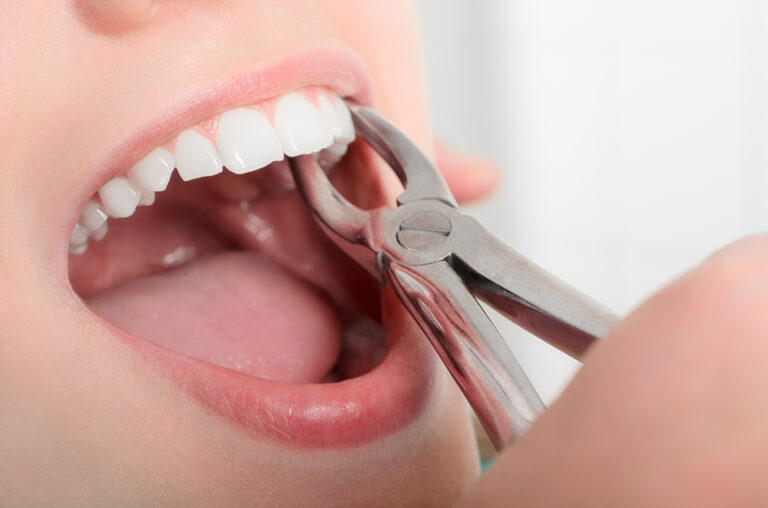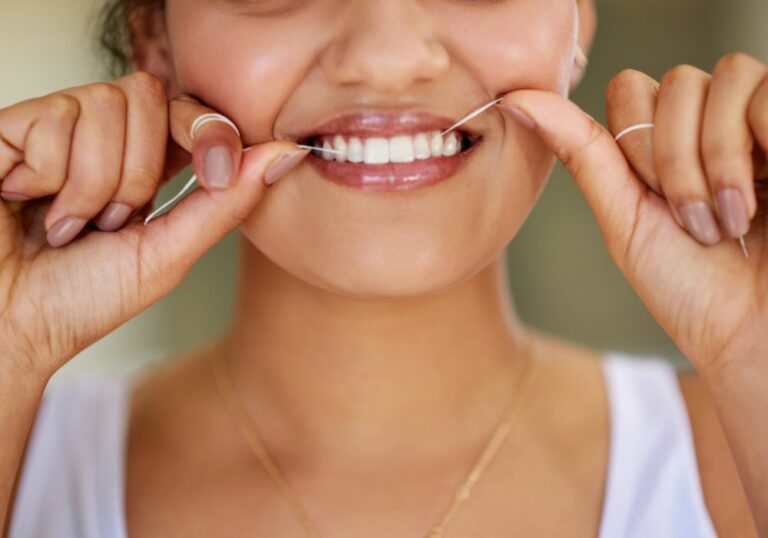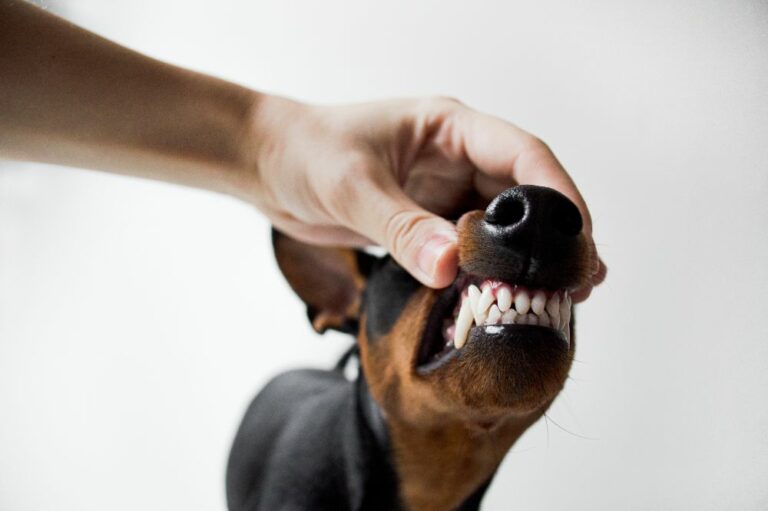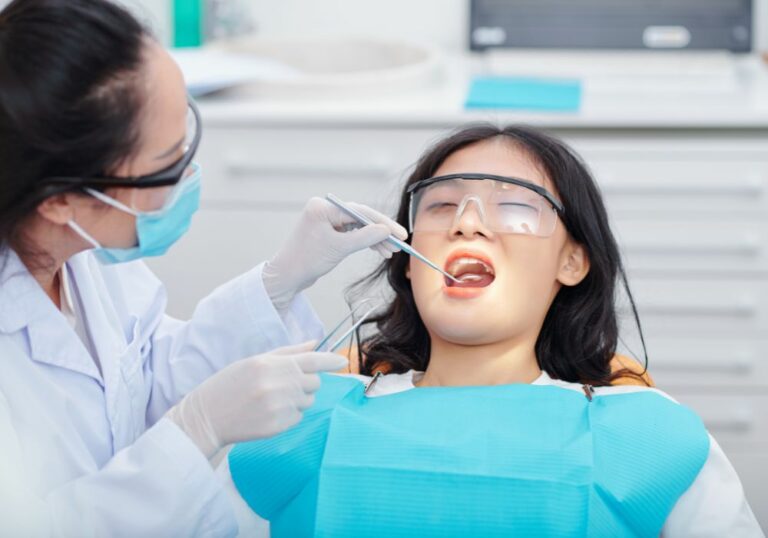Having a tooth that feels sharp and digs into your cheek can be very frustrating and uncomfortable. This irritating problem can disrupt your meals, speech, and tooth brushing. While a minor issue at first, leaving it unchecked allows more serious dental consequences to develop.
To understand how to find relief, you need to first identify the underlying cause.
Five Main Culprits for Sharp Painful Teeth
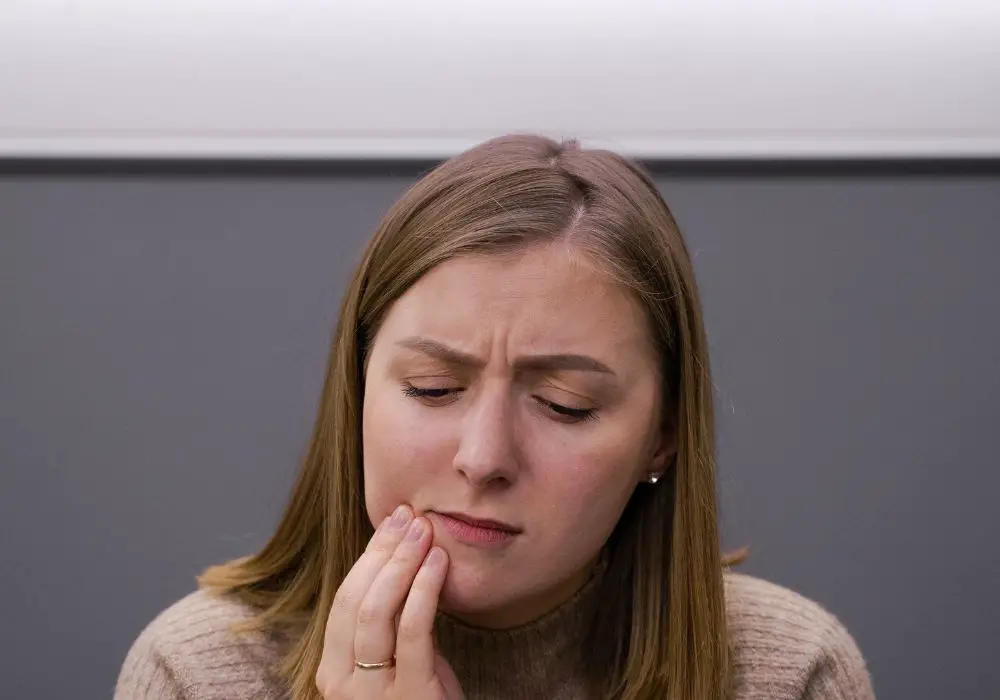
There are five primary reasons you may suddenly have a tooth biting and irritating your cheek tissue:
1. Cracked or chipped teeth
When you fracture part of a tooth, it leaves a rough uneven surface with razor-sharp edges. This newly exposed dentin and enamel is hard and damages the soft cheek tissue each time you bite down. Cracks and chips most often occur along the chewing surface and ridges of back molars and premolars. They can form from:
- Trauma like getting hit in the mouth
- Biting down on hard objects like ice cubes
- Grinding or clenching your teeth at night
Small cracks are sensitive to temperature and may go unnoticed at first. But as they widen, the fractured rough edges rub against your cheek. Large fractures are also prone to infection requiring a root canal.
2. Worn enamel from bruxism
Chronic teeth grinding wears down your enamel overnight. This causes sharp ridges and points to form along the chewing surface and sides of teeth. The cusps then scrape against your cheek when you bite. Wear may initially only affect the enamel but can progress to dentin exposure once enamel is lost. The increasing roughness leads to more frequent and deeper injuries.
Besides cheek cuts, worn teeth are also at higher risk for cavities and fractures. The jagged anatomy also shifts your bite alignment causing jaw joint issues.
3. New tooth eruption
As wisdom teeth emerge and adult teeth shift, it exposes new ridges with thin enamel. The tongue-side edges of newly erupted teeth have not yet been smoothed down by chewing motions. So they tend to have a sharp blade-like feeling.
This immature texture catches easily on the soft cheek tissue during biting and chewing. The problem typically resolves on its own as the tooth finish matures and adapts to your bite. But very high or misaligned wisdom teeth may require extraction.
4. Crowded, crooked teeth
When teeth overlap or twist out of alignment it brings sharp edges against your cheek. The tongue side of rotated teeth often scrapes the cheek. Crowding also pushes teeth outward so they extend too far and impale your inner cheek tissue.
Seeing your dentist for Invisalign or braces can help properly realign your bite. This removes pressure points and allows irritating edges to be smoothed.
5. Loss of neighboring teeth
Extracting teeth or losing them to decay leaves empty gaps in your smile. This allows the opposing teeth to over-erupt and grow longer. The new extended crown and ridges may then poke into your cheek when you bite.
A partial denture or dental implant can replace missing teeth. This stops over-eruption and maintains the original bite spacing that keeps your cheeks safe.
Three Options for Treating Painful Sharp Teeth
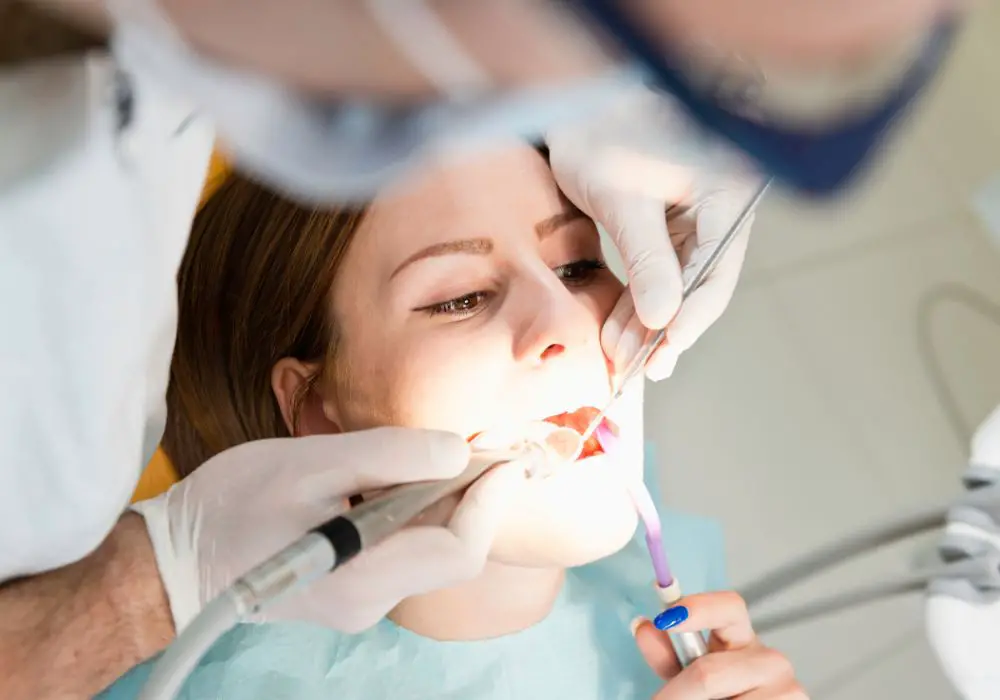
If you are dealing with a tooth that is persistently irritating your cheek, make an appointment with your dentist right away. Allowing it to continue risks more dental damage.
During your exam, your dentist will identify which teeth are involved and why they have become problematically sharp. X-rays and impressions of your bite may be needed.
Based on the cause, they will recommend one of these effective treatments:
1. Smoothing and polishing
For mildly sharp ridges or uneven edges, the tooth can simply be filed and polished smooth. This is a painless office procedure taking just minutes. It rounds off the sharpness so your cheek moves freely over the surface.
2. Dental restorations
If the sharpness is due to fractures or decay, the damaged sections will need to be repaired. Fillings and dental bonding reconstruct chipped edges. Crowns fully cover broken teeth to recreate the original shape and chewing surface. The custom-fitted restorations are created to have rounded contours that won’t irritate your cheek.
3. Orthodontic alignment
Crooked, crowded, or over-erupted teeth may require orthodontics to reposition them. Invisalign is a popular option that uses a series of clear plastic aligners over weeks to months. By straightening your bite, irritating overlaps and sharp protrusions are eliminated.
Why Prompt Dental Care is Essential

While a sharp tooth may seem like a trivial, temporary annoyance, getting treatment quickly is important to prevent complications:
- Infection – Fractures and cavities allow bacteria to invade tooth pulp and tissues.
- Tooth loss – Cracks and decay left untreated lead to extractions.
- Cheek injuries – Chronic abrasions and ulcers require wound care and antibiotics.
- TMJ disorders – Chewing changes from tooth pain can overextend the jaw joints.
- Bone loss – Concentrated biting pressure from sharp points accelerates periodontal damage.
- Tooth wear – The unbalanced biting forces worsen cracks and grind ridges down faster.
- Disease spread – Bacteria and inflammation can spread to infect the gums and other teeth.
- Digestive issues – People avoid chewing properly on the sore side which causes GI problems.
- Speech changes – Irritation and bite alterations interfere with clear speech.
Catching sharp biting teeth early and smoothing them prevents exponentially worse issues down the road. Talk to your dentist right away for solutions.
7 Tips to Soothe Your Cheek While Awaiting Dental Treatment
If you have to wait a few days for your dental appointment, here are some helpful tricks to ease cheek discomfort in the meantime:
- Wax guards – Covering the tooth with orthodontic wax creates a smooth cushion protecting your cheek when you bite. Reapply as needed.
- Saltwater rinses – Gently swishing with salt water keeps the area clean and promotes healing.
- Medicated numbing gels – Products like Orajel can temporarily numb cheek pain.
- Avoid hard, crunchy foods – Prevent further abrasion by only chewing soft foods.
- OTC pain relievers – Anti-inflammatories like ibuprofen can relieve soreness.
- Adjust sleep position – Sleep on your opposite side so the tooth doesn’t rub your cheek all night.
- Chew on the opposite side – Try to shift chewing motions to the unaffected side until repaired.
While waiting for your dental visit, be very gentle brushing near the irritated cheek area. But keep brushing other teeth normally to avoid worsening problems.
Seeing your dentist promptly is critical for proper diagnosis and treatment. With care, a sharp painful tooth can be smoothed for relief very quickly. Ignoring it allows the problem to escalate needing more extensive dental work.
FAQs About Managing Sharp Teeth Irritating Your Cheek
Here are answers to some frequently asked questions about dealing with tooth edges biting your cheek:
Q: Should I get the tooth pulled if it keeps scraping my cheek?
A: Extraction should only be a last resort if the tooth cannot be repaired. See your dentist first for smoothing, restoration, or orthodontic options.
Q: Can I bond something to the tooth to make it smooth?
A: No, don’t attempt any do-it-yourself tooth modifications. It likely won’t hold well and could make problems worse. See your dentist for proper treatment.
Q: How long does it take to heal cheek abrasions from sharp teeth?
A: With proper dental treatment and care, minor cheek irritation and small ulcers usually heal within 7-10 days. Deeper injuries may take several weeks.
Q: Will chewing gum help toughen my cheek tissue?
A: No, gum won’t directly strengthen or thicken your cheek tissue. See your dentist to address the underlying dental cause of the sharp biting edges.
Q: Can wearing a nightguard help smooth my teeth that are biting my cheek?
A: Unfortunately no. A nightguard only protects from grinding damage; it doesn’t change tooth anatomy. See your dentist for reshaping, restoration or orthodontics.
Q: Can braces or Invisalign cause my teeth to feel sharp temporarily?
A: Yes, it’s common for braces to irritate your cheeks initially until you adjust to the sensation. Notify your orthodontist if it persists.
The key is to see your dentist right away if a tooth is persistently irritating your cheek. Identifying the cause and quickly restoring proper shape is essential to avoid further dental damage and discomfort.

